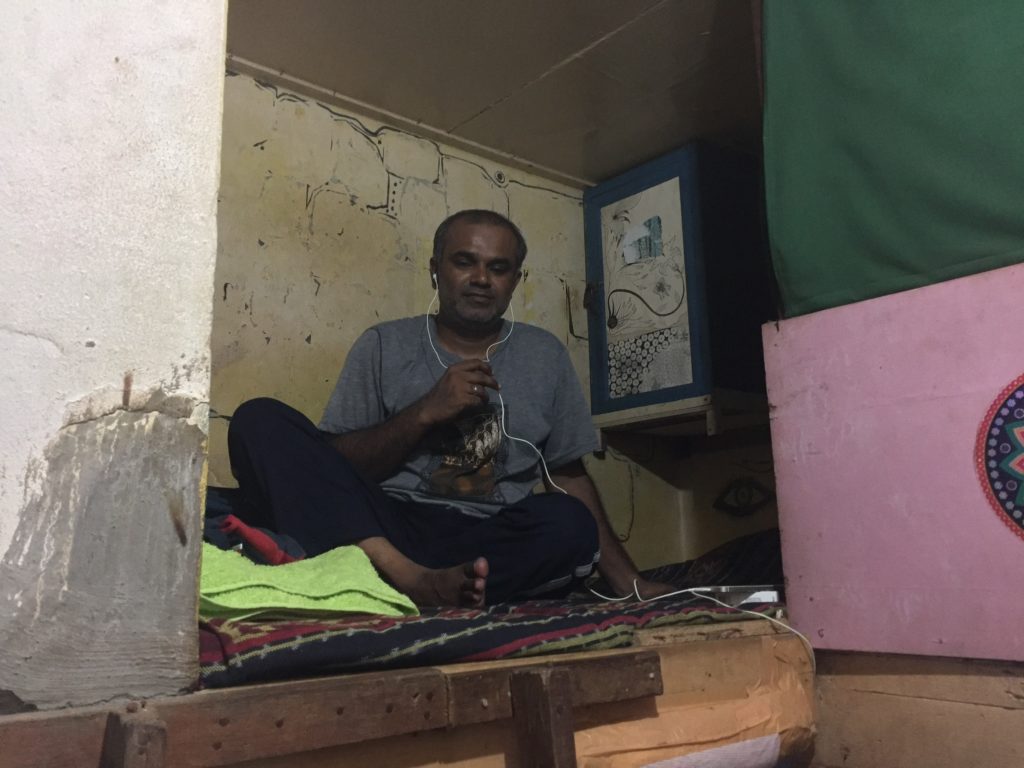Sayed Azuri may be guilty of naivety, but even in Indonesia that isn’t a crime.
Yet Azuri finds himself trapped in a Kafkaesque nightmare at Kerobokan Prison — possibly the only truly innocent man in the entire jail, but less certain of his fate than any other.
The Mumbai native was taken aside at Denpasar’s Ngurah Rai airport in late December after officials noticed he was walking strangely.
They thought they’d hit the jackpot when a strip search revealed his underpants to be bulging with tightly wrapped packages. Another drug smuggler in all likelihood, the chance to show off to the media and possible promotions all round.
When a customs official carefully sliced through one of the packages, however, it wasn’t the usual crystal meth that came tumbling out, but crystal of a different sort … dozens and dozens of gemstones.
No matter, said the customs officials, this was still a jackpot, albeit of a different kind. Failure to declare and avoiding paying import duty on valuable stones was a serious offense, punishable by the confiscation of goods, hefty fines and imprisonment.
There was only one problem; the stones were all fake.
 Unlike most arrestees, who are held in remand jails for up to three months while police and prosecutors build a case, Sayed was hustled into Kerobokan in a matter of days.
Unlike most arrestees, who are held in remand jails for up to three months while police and prosecutors build a case, Sayed was hustled into Kerobokan in a matter of days.
Abroad for the first time, speaking no Indonesian and just broken English, he languished in the new arrivals block for a week until he was spotted by a fellow Indian and namesake Sayed Mohammed, who arranged for him to be transferred to our block.
He finally managed to contact his consulate and also call home. His brother arranged to fly out to see him.
Sayed worked in administration for a merchant in Mumbai when one of his bosses friends approached him with an offer to make a quick rupee.
“He said he was going to do business with someone in Bali and if I took the stones, he would pay me $200,” he said.
“He told me they were fake and that the man in Bali knew they were fake. Nobody was trying to cheat anybody.”
The businessman insisted, however, that Sayed store the stones in his underpants in case they were stolen. Despite being artificial, they still had some value and convinced he was doing nothing wrong, Sayed agreed.
“In Singapore they stopped me and searched me and also found the stones, but they checked them on the spot with a machine and let me go,” he said.
“They asked why I had them in my underpants so I told them. They just laughed.”
Denpasar has no such on-the-spot testing facility, so Sayed was held in an airport cell while the stones were sent to an expert who valued the fakes at around $5,000. A few days later he was moved to Kerobokan.
The police and prosecution are convinced the stones were intended to be used in some fraudulent deal, but the man Sayed was supposed to meet up with has vanished off the radar.
Bringing artificial gemstones into Indonesia is not, in itself, a crime, and the value of the fakes falls well below the threshold of goods that must be declared by visitors.
So they think there was a crime going to happen, they don’t know who or what it involved, but they have the “evidence” and a courier.
So what to charge him with?
Nothing as yet, so his case languishes.
“The prosecution say if I give them 50 million rupiah, the value of the stones, they will charge me with attempted smuggling and release me the same day,” he said.
“But I don’t have such money and I have done nothing illegal.”
We are all convinced that Sayed was being used on a dummy run to see if he would be caught. Had he got through, the next courier would likely have been carrying real stones worth hundreds of thousands of dollars.
Sayed has come to accept that is probably the case — our theory bolstered by the fact his former boss and the businessman friend want nothing to do with him.
Lawyers have been lining up to help him, but all want an exorbitant fee and he stands no chance of navigating through the Byzantine legal system on his own even if they ever did find something to charge him with.
Shy and withdrawn, he spent the first month in Kerobokan crying to himself, terrified by the constant arguments and fights that broke out.
After his brother’s visit he mustered up the $300 needed to get a room and the committee, knowing he is unlikely to be here for that long so it was easy money, allocated him the space above me made vacant by one of the TB patients.
He has been here for three days, sitting alone in his cocoon, swaying and chanting, until I boot the ceiling and tell him to shut up. An hour or two later he starts again, and the process is repeated.
“I am sorry Mr Fox,” he says. “I made a promise to chant the Prophet’s name 10,000 times each day. I hope this will help set me free.”

Kafkaesque indeed. Poor bugger.
Truth is so much stranger than fiction.